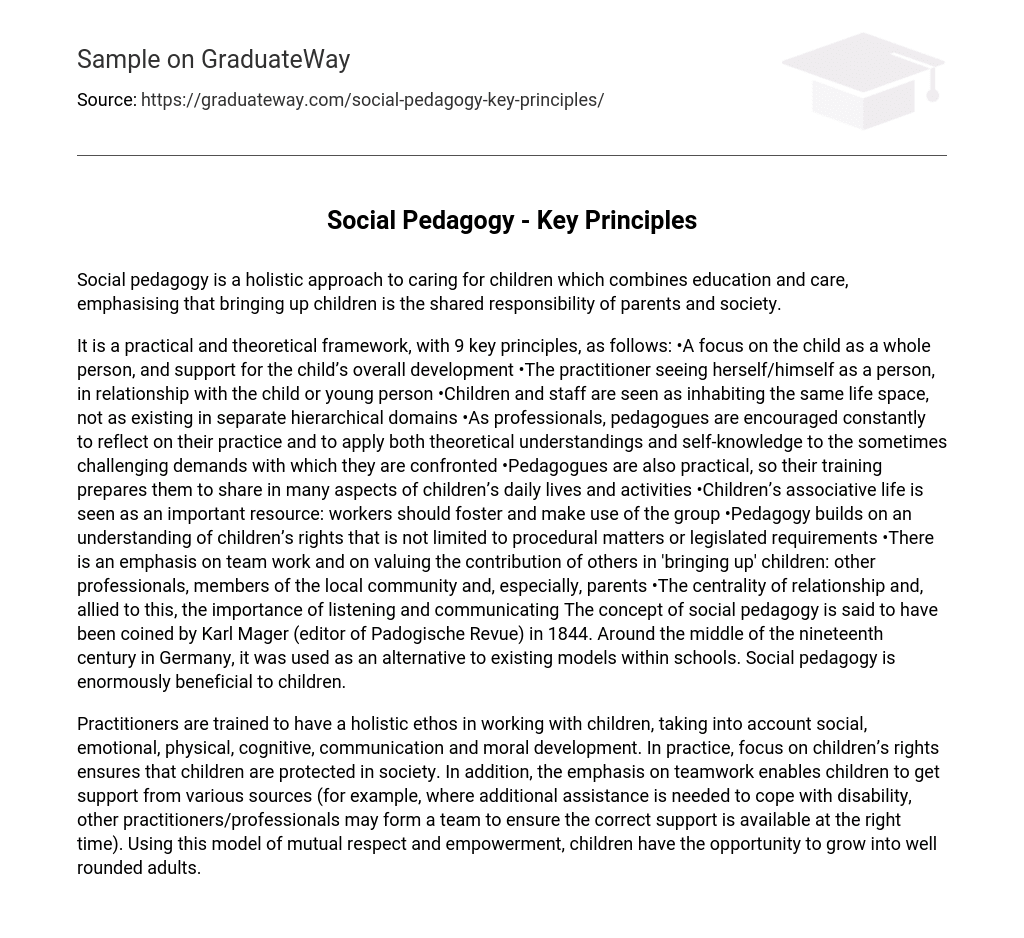Social pedagogy is a holistic approach to caring for children which combines education and care, emphasising that bringing up children is the shared responsibility of parents and society.
It is a practical and theoretical framework, with 9 key principles, as follows: •A focus on the child as a whole person, and support for the child’s overall development •The practitioner seeing herself/himself as a person, in relationship with the child or young person •Children and staff are seen as inhabiting the same life space, not as existing in separate hierarchical domains •As professionals, pedagogues are encouraged constantly to reflect on their practice and to apply both theoretical understandings and self-knowledge to the sometimes challenging demands with which they are confronted •Pedagogues are also practical, so their training prepares them to share in many aspects of children’s daily lives and activities •Children’s associative life is seen as an important resource: workers should foster and make use of the group •Pedagogy builds on an understanding of children’s rights that is not limited to procedural matters or legislated requirements •There is an emphasis on team work and on valuing the contribution of others in ‘bringing up’ children: other professionals, members of the local community and, especially, parents •The centrality of relationship and, allied to this, the importance of listening and communicating The concept of social pedagogy is said to have been coined by Karl Mager (editor of Padogische Revue) in 1844. Around the middle of the nineteenth century in Germany, it was used as an alternative to existing models within schools. Social pedagogy is enormously beneficial to children.
Practitioners are trained to have a holistic ethos in working with children, taking into account social, emotional, physical, cognitive, communication and moral development. In practice, focus on children’s rights ensures that children are protected in society. In addition, the emphasis on teamwork enables children to get support from various sources (for example, where additional assistance is needed to cope with disability, other practitioners/professionals may form a team to ensure the correct support is available at the right time). Using this model of mutual respect and empowerment, children have the opportunity to grow into well rounded adults.





